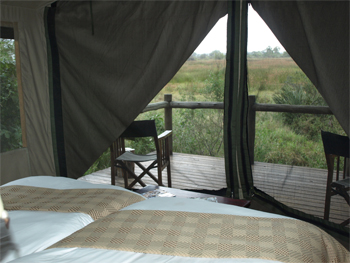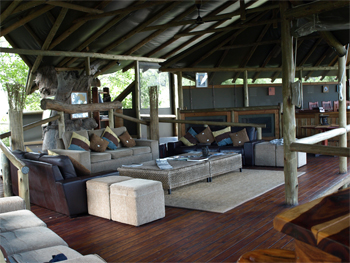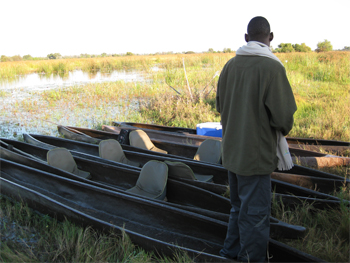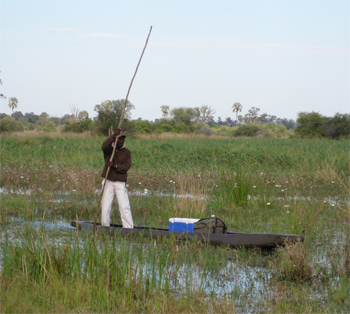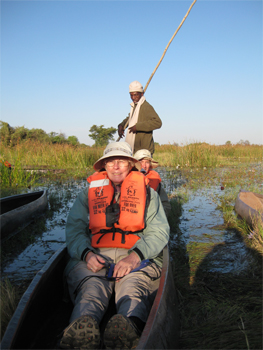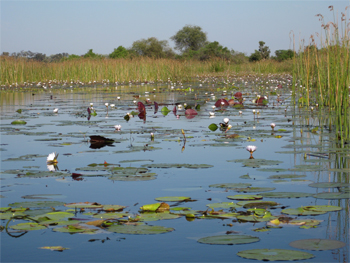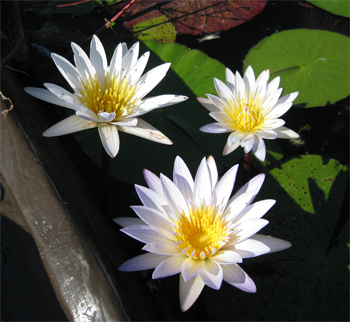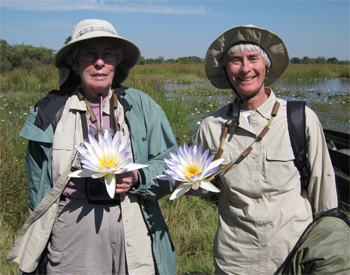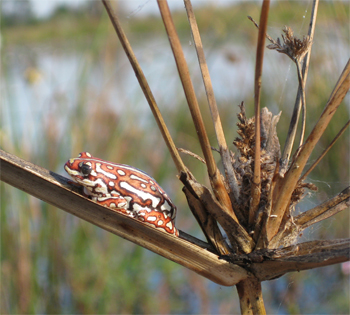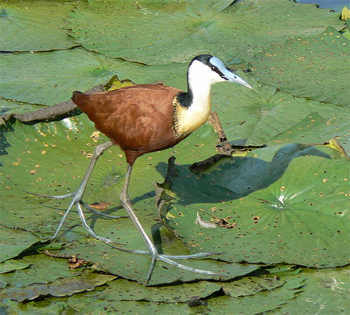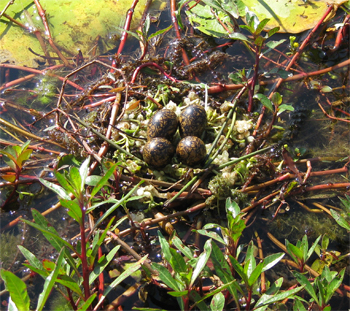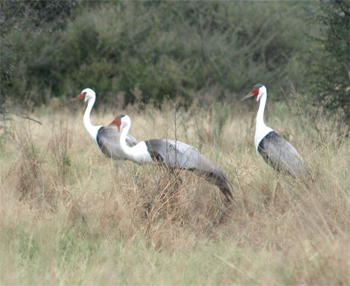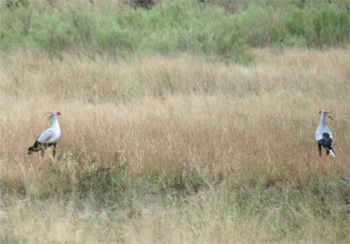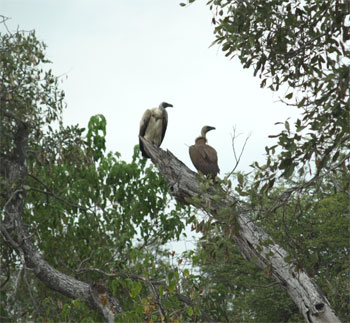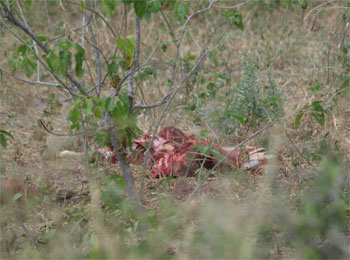May 16-19 - Wilderness Tented Camp, Okvango Delta, Botswana
This morning we boarded a small bus (not the open jeeps) for the one-hour ride back to the Kasane airport to get on a 12-seat single prop plane for the ride to the airstrip near the Moremi Game Reserve in the Okavango Delta, Botswana.
On the jeep ride from the airstrip to our new safari camp, we could see the much different terrain here - mostly sandy grass and dried marsh. It is the beginning of the dry winter season. As a result of the different terrain there are some new Animals and Birds to add to our list: wildebeest (gnus), Tsessebe, steenbok, a red-breasted shrike, a Senegal coucal.
After lunch, we found our new accommodations, which are a little "briefer" than at the Baobab Camp. Since there is no place to write in our tent, I sat in the main area to catch up on two days of journal.
Room with a view |
Open-air lounge (they were all open)
|
On our first evening game ride, we spotted our second leopard, only it was daylight so we could see him.
|
|
Seeing the leopard made up for the time spent fixing the flat tire we had when we started the ride.
|
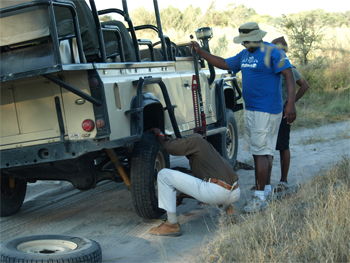 |
The highlight of our Okavango Delta stay was a morning spent in a mokoro being poled along in the side channels of the Khwai River.
Our mokoros were made of fiberglass instead of "sausage" tree wood and had two seats with backs on the floor. The poler stood in the stern. It was a smooth, comfortable, quiet and pleasant ride.
|
Mokoros
|
Poling the mokoro |
Interesting position for long legs
|
The area was filled with water lilies, which opened up as the sun got higher. The flower can be dried and made into a love potion, the rhizomes are edible like potatoes, and the stem and flower can be made into a necklace. Each of the women went back to camp with a necklace made by our poler, but the flower wilts after an hour or two.
|
Beautiful reeds and lilies
|
|
With our water lily necklaces
|
Unfortunately there were many examples of Kariba weed that is invasive from South America (like Kudzu here). It floats in island clumps and can choke the channel. So far they have been unable to eradicate it.
Our guide pulled up some water lettuce with another pretty yellow flower with a bulb beneath the petals. The locals call it the "eye dropper" weed because liquid squeezed from the bulb is good for irritated or itchy eyes.
We saw a few small (3 cm) painted reed frogs also called bull frogs because of the sound they make. The male can change color like a chameleon.
|
Painted Reed Frog |
Jacana (photo from Google)
|
Jacana nest and eggs |
The boat ride was wonderful and different. When we arrived back at camp our driver/guide, Kobe, had to chase an elephant out of his parking place!
During the second night at this camp, we had our first real rain storm (sprinkles at Pafuri don't count). At 12:15 AM it started to thunder, lightning, and pour rain. This went on for about 1 1/2 hours and then intermittent light rain. The thunder was tremendous - loud and long. We were warm and dry in our stout tent suites and it stopped in time for the morning game drive.
We were still looking for lions and cheetahs - without any luck. We did spot two rare birds - both near extinction from loss of habitat - the wattled crane with long white necks and the secretary bird with unique quill-like feathers on the crown.
Wattled Crane
|
Secretarybird |
We saw a bunch of vultures sitting in trees in one area and went to find the source of their interest. We found a fresh impala carcass. We then drove around looking for the lion or cheetah that would have made the kill but with no success.
|
|
White-backed Vultures
|
Fresh kill |
A word about elephant damage, a topic addressed in one of the talks by our guides: The delta area has three times as many elephants as is beneficial. (It is the same problem as our elk create.) The elephants destroy the trees and trample down the marshes. They have tried culling the animals but a whole herd must be killed or the survivors remember and become aggressive to people. The have tried to relocate herds, but they are smart enough to find their way back. Much of the government budget for attacking this problem had to be diverted to fighting the HIV virus, which is endemic in these countries. The five countries that surround and include Botswana are working on a plan for a "transfrontier" park to try to control hunting instead of poaching and manage the size of the herds.
| Return to Top | Return to Itinerary | Return to Dreamcatcher Home Page |
